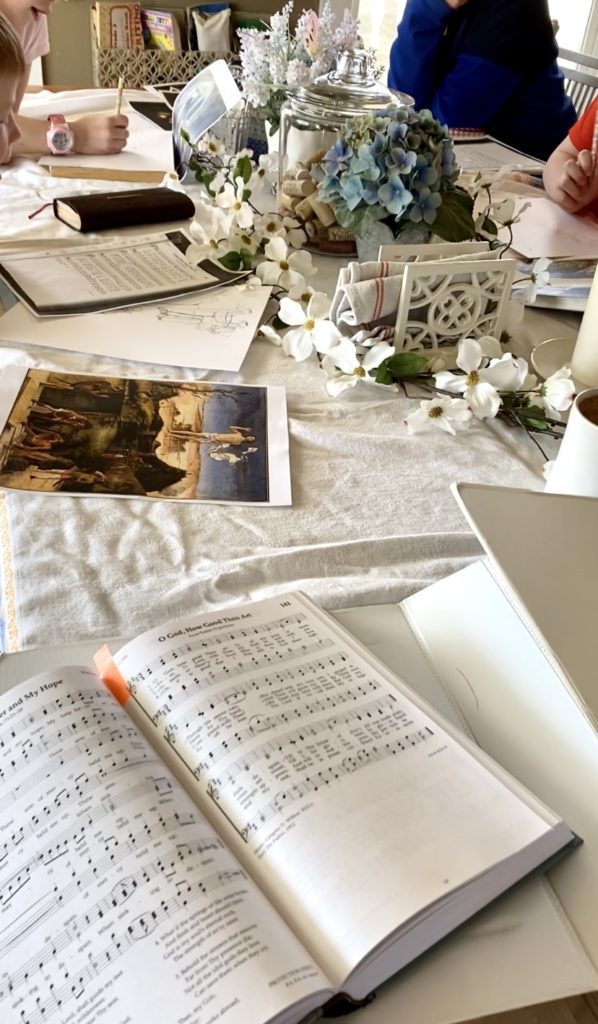Ephesians 4:29
Let no corrupting talk come out of your mouths, but only such as is good for building up, as fits the occasion, that it may give grace to those who hear.
What does the Bible have to say about our words? Wholesome speech. Honorable speech. Sound speech. Controlling our tongues.
Quite a lot actually. If you read through Proverbs regularly like my family does, you’ll find that it is a frequent focus in the wisdom of Solomon. Here in Ephesians 4, the Apostle Paul has just been encouraging the people in the church in Ephesus to have unity in their pursuit of Christ, integrity in theology, faithfulness to their callings and giftings, and an exhortation on what it means to live in the new life of a Christian—putting away darkened understanding and turning from the futility of mind, putting off the old self with corruption and deceitful desires, turning from “every kind of impurity.” Paul writes, “PUT OFF your old self… and be renewed in the spirit of your minds… put on the new self, created after the likeness of God in true righteousness and holiness.” And here is the famous clincher: what is the THEREFORE there FOR?? Paul writes, “Therefore, having put away falsehood, let each one of you speak the truth with his neighbor, for we are members one of another… Let no corrupting talk come out of your mouths, but only such as is good for building up, as fits the occasion, that it may give grace to those who hear. And do not grieve the Holy Spirit of God, by whom you were sealed for the day of redemption. Let all bitterness and wrath and anger and clamor and evil speaking be put away from you, along with all malice.”
So what is “corrupting” talk? Any ideas? Probably anything that is NOT “building up” and “giving grace.” Other translations say “rotten” or “unwholesome.”
Matthew 15:11 tells us that it is not what goes into a man’s mouth that defiles him but what comes out of his mouth.
But here’s the thing: the battle for purity of the mouth and tongue (by which of course I mean, your words) is fought in the heart. In Luke 6:45, Jesus declared that “out of the abundance of the heart, the mouth speaks.” My dad used to say, “what is down in the well comes up in the bucket.”
Pastor John Piper describes four main types of corrupting or rotten talk: taking the name of the Lord in vain, trivializing terrible realities, referencing sexuality or the body in vulgar ways, being vicious and mean-spirited. Then Piper describes four implications of this kind of speech: it does not nourish, it will harm/wound/make sick, rotten words are rotten fruit and rotten fruit comes from rotten trees. Piper says, “the issue for Paul is not really language at all; the issue is love. The issue is not whether our mouth can avoid gross language; the issue is whether our mouth is a means of grace. You see he shifts from the external fruit to the internal root. He shifts from what we say to why we say it. That’s the issue.”
Scripture is full of reminders that what we say matters. But Scripture is also clear that the reason for that is because our words, our speech, our attitudes show much about the state of our hearts.
Proverbs 11:9, 12—with his mouth the godless man would destroy his neighbor, but by knowledge the righteous are delivered. Whoever belittles his neighbor lacks sense, but a man of understanding remains silent.
Proverbs 15:1, 2, 4—a soft answer turns away wrath, but a harsh word stirs up anger. The tongue of the wise commends knowledge, but the mouths of fools pour out folly. A gentle tongue is a tree of life, but perverseness in it breaks the spirit.
Proverbs 18:4—the words of a man’s mouth are deep waters; the fountain of wisdom is a bubbling brook.
Proverbs 20:15—the lips of knowledge are a precious jewel.
But let me close with this—it is by Christ and the Holy Spirit that we can turn from darkness, that we can turn from corrupt speech. “The mouth of the righteous is a fountain of life” because GOD is a fountain of life and the righteous live on God. And the way God means to change the mouth is by becoming that abundance. He means to be a fountain of life for us and in us so that out of that abundance our mouths can be a fountain of life for others. We’ve seen the call of God to put away, put off, get rid of, turn away from… all the negatives. But what does Scripture tell us about pure words and righteous speech?
The mouth of the righteous is a well of life. He who restrains his lips is wise. The lips of the righteous feed many. The mouth of the righteous brings forth wisdom. A man will be satisfied with good by the fruit of his mouth. The tongue of the wise promotes health. The truthful lip shall be established forever. He who guards his mouth preserves his life. Whoever guards his mouth and tongue keeps his soul from troubles. A word fitly spoken is like apples of gold in settings of silver.

And in conclusion, Psalm 141:3 and 19:14 are a beautiful prayer to ask for God to equip us and sanctify us and purify us as we ponder our words:
“Set a guard, O Lord, over my mouth; keep watch over the door of my lips! Let the words of my mouth and the meditation of my heart be acceptable in Your sight, O Lord, my Rock and my Redeemer.”

